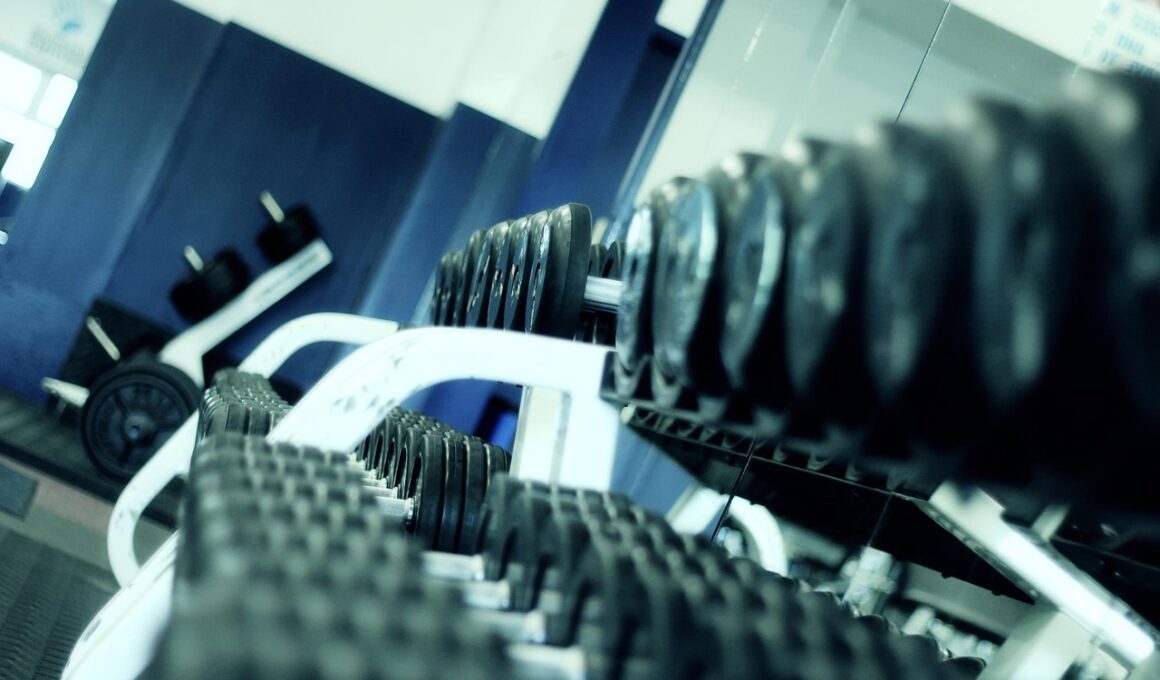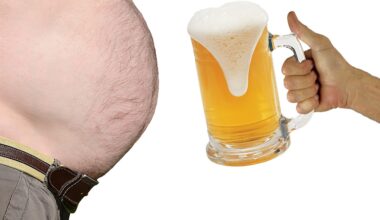The Impact of Drug Testing in Pro and Amateur Bodybuilding
Bodybuilding, particularly at competitive levels, varies significantly between pro and amateur categories. One of the main differences lies in the regulations regarding drug use. Professional competitions generally enforce stricter drug testing policies, ensuring that competitors abide by anti-doping regulations set forth by organizations such as the IFBB. On the other hand, amateur competitions might not always follow the same rigorous testing protocols. As a result, the competitive landscape can differ dramatically between the two levels. Drug testing aims to create a level playing field where athletes compete based on their natural abilities and hard work. This ensures that the focus remains on the skill set and training regimens of each participant. However, the inconsistency in rules can lead to disparities in fairness. Some argue this makes amateur competitions feel less legitimate as a result of unclear policies surrounding performance-enhancing substances. To summarize, drug testing significantly impacts how an athlete prepares for their body, shaping factors such as training and nutrition plans. Therefore, athletes’ choices in competing at a particular level can change based on these regulations.
In professional bodybuilding, drug testing is a critical aspect that influences athlete preparation. Athletes often invest considerable time and resources to ensure they are compliant with regulations. This commitment can frequently involve consultations with specialists in nutrition and health to maximize performance while adhering to legal guidelines. Such thorough preparation is crucial in preventing bans that can detract from an athlete’s career. Moreover, compliance with testing enhances an athlete’s reputation among peers and fans. It signifies integrity and commitment to the sport. In contrast, amateur competitions may include competitors who have limited knowledge about the rules governing drug use and testing. This discrepancy can lead to competitors at the amateur level making uninformed choices, risking health and future careers. As competitions increasingly adopt stricter regulations, amateurs may find themselves under pressure to perform. Ultimately, the presence or absence of drug testing shapes not only competition type but also influences athlete behavior leading up to events. Thus, the varying degrees of testing between levels can create a diverse environment across bodybuilding events, altering the competition’s essence and integrity.
The Challenges of Drug Testing
Despite the noble intentions behind drug testing, it presents several challenges for organizers and athletes alike. For professional competitions, ensuring that every participant is tested consistently can be a logistical challenge, particularly at large events. These complexities can create dissatisfaction among athletes and spectators if results do not appear promptly. Furthermore, organizations also need to remain updated about the evolving landscape of performance-enhancing drugs and methods, which can complicate the testing methods themselves. While amateur competitions may face fewer logistical hurdles, effective enforcement of drug testing policies remains a challenge. Many amateur events lack the funding necessary to conduct thorough testing, potentially compromising the integrity of the competition. Additionally, athletes might not be aware of the substances banned by different organizations. Education and transparency become critical areas for improvement; without them, many from the amateur ranks may be left in the dark about what they can and cannot use. As drug testing continues to evolve, it’s essential that both professionals and amateurs must recognize its importance and advocate for enhanced understanding and implementation across all levels of bodybuilding.
One significant aspect of drug testing in bodybuilding is the psychological toll it can exert on athletes. In professional circles, knowing that one can be tested at any time instills a sense of pressure. This pressure can either motivate an athlete to focus intensely on training and nutrition or create anxiety that can negatively affect performance. Hence, the psychological aspects of adhering to drug-testing policies cannot be overlooked. Conversely, amateur competitors may not feel the same level of pressure due to the less stringent testing regime. This can lead to unhealthy behaviors where athletes might resort to performance-enhancing drugs without consideration for health risks. Recognizing the benefits and pitfalls of drug use should be part of a broader educational campaign targeting athletes at all levels. With a clearer understanding of the implications of drug use, competitors can make better choices that align with their long-term health goals and competitive aspirations. Thus, addressing the issues linked to drug testing and its influences is important beyond just compliance. It involves encouraging a healthier approach to fitness and competition.
Benefits of Drug Testing
While drug testing can be burdensome, it also presents several benefits for bodybuilding competitions. First and foremost, it fosters a sense of fairness among competitors. By ensuring that all athletes are subject to the same testing procedures, organizations help to level the playing field, allowing natural talent and dedicated training to shine through. Moreover, stringent testing protocols enhance the overall reputation of the sport. Bodybuilding, like many sports, benefits from public perception that values integrity and fairness. As fans appreciate the commitment to fair play, the sport can garner broader support and interest. This positive reputation can translate later into sponsorship opportunities and audience engagement at various events. Additionally, drug testing can encourage athletes, especially amateurs, to prioritize their health and well-being. Knowing the risks associated with performance-enhancing substances may deter athletes from seeking shortcuts, leading to more sustainable training practices focused on long-term results. Consequently, these benefits create an environment where athletes can celebrate their accomplishments without the shadow of performance-enhancing drug use affecting their hard work.
One noteworthy trend in the bodybuilding community is the increasing push towards more transparent drug testing methods. Improved testing technology and methodologies have begun to shape various competitions, making it more difficult for athletes to evade detection. As awareness of doping grows, competitors are more informed about the risks involved with using prohibited substances. This shift creates a ripple effect, potentially reducing the number of athletes who engage in drug use. Furthermore, more rigorous drug testing can result in a sense of pride among participants. Athletes can be confident competing in environments where they know everyone is following the same standards. This effect is particularly observable in professional bodybuilding organizations where compliance is rigorously monitored. Enhanced drug testing also signals to sponsors that organizations prioritize fairness within their competitions. As drug testing grows in consistency and reliability, it instills faith among stakeholders, including fans and sponsors. Overall, the evolution of drug testing reflects changing attitudes in the community, promoting an ethos of health, fair competition, and respect for the sport’s rich history.
Conclusion on the State of Drug Testing
In conclusion, drug testing remains a pivotal component of bodybuilding competitions, shaping the landscape for both professional and amateur athletes. As the sport evolves, continuous efforts toward enhancing and standardizing drug testing practices can foster a more level playing field. The distinctions in how drug testing is implemented between the two levels of competition highlight the disparities that exist, such as funding, resources, and athlete education. A strong foundation of education concerning drug use and the importance of fair competition is necessary for athletes, coaches, and organizations alike. Collectively, they must embrace these changes to ensure the sport thrives and reflects its core values. Strategies addressing drug testing will lead to healthier athletes capable of reaching their fullest potential without compromising integrity. As audiences and sponsors demand fair play, it is paramount that the bodybuilding community responds positively to these expectations. Ultimately, the road ahead involves improvements in education and regulation while maintaining a dedication to both respect for the sport and the health of its athletes.
Through all these considerations, the varying impact of drug testing in bodybuilding, at both professional and amateur level, is undeniable. It informs how competitors train, the types of methods they adopt, and their overall approach to entering competitions. By recognizing the implications of drug testing, athletes learn to cultivate a deeper understanding of the sport they love. As conversations surrounding drug use evolve, the bodybuilding community must navigate these changes responsibly. Only through rigorous testing and consistent education can the sport ensure a fair representation of all athletes. This will also encourage greater inclusion, allowing individuals from diverse backgrounds to join the sport in a responsible and informed manner. Therefore, the significance of drug testing cannot be overstated, influencing both the competitors and the overall sporting experience. The commitment of various bodybuilding organizations to uphold high standards of conduct will shape the future of this sport significantly. This concerted effort to maintain fairness and accountability is crucial in sustaining the integrity of bodybuilding and attracting new talent. In striving for excellence, athletes can pave the way for a bright future, remaining true to their commitment to health and competitive integrity.


